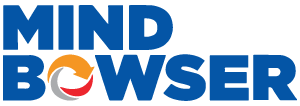Healthcare integration refers to connecting various systems, applications, and data sources within the healthcare ecosystem to create a unified and efficient flow of information. Healthcare data integration ensures that important patient data from multiple sources—such as EHRs, laboratory systems, and imaging tools—is accessible in one place.
This integration significantly benefits patient care by reducing redundancies, improving diagnostics, and ensuring timely access to patient information. Integrated healthcare systems enable healthcare providers to coordinate better, reduce errors, and offer more effective treatments, ultimately elevating the quality of care delivered.
Unstructured data in healthcare includes medical images, clinical notes, problem lists, discharge summaries, and radiology reports. Unlike structured data, it lacks a defined format, making it more complex to manage. Despite this, it holds valuable insights for improving patient care and clinical decision-making.
The healthcare integration market is expected to reach USD 7.51 billion by 2030, up from USD 3.90 billion in 2023, at a CAGR of 9.8% over the forecast period. Integrated healthcare systems improve patient care and outcomes by enabling real-time access to critical information.
Examples of healthcare integration include hospitals implementing systems that connect EHRs with pharmacy and lab data, enabling seamless workflows. Companies like Epic and Cerner are helping healthcare organizations streamline data integration in healthcare, making coordinated care a reality. These examples highlight how data integration transforms healthcare into a more efficient and patient-focused system.
Healthcare practitioners frequently deal with large administrative responsibilities and unstructured patient data, which can lead to inefficiencies and errors. Managing unstructured data from multiple sources consumes valuable time that could be spent on patient care. EHR integration offers a way to consolidate and streamline data, allowing professionals to focus more on delivering quality healthcare. Let’s get to know the benefits of EHR integration below:
Integrated EHR systems enable healthcare providers to access patient records from a single platform. This consolidated view of medical history, lab results, and treatment plans eliminates the need for repetitive data searches, improving decision-making and reducing delays in care delivery.
EHR integration facilitates better communication across departments that ensures everyone involved in a patient’s care is on the same page. Whether sharing lab results with specialists or updating discharge plans, this coordination minimizes errors and ensures patients receive the right care at the right time.
Integrated systems automate repetitive tasks such as data entry and billing processes. This reduces the administrative workload on staff, allowing them to dedicate more time to patient interaction and other critical responsibilities, ultimately improving operational efficiency.
EHR systems aggregate and analyze data to provide actionable insights into patient care trends. These insights help identify patterns in treatment efficacy, enabling providers to make informed adjustments to care plans, leading to better health outcomes.
EHR integration ensures that sensitive patient information is stored and shared securely, meeting regulatory standards like HIPAA. Automated compliance checks and secure access controls reduce the risk of data breaches, safeguarding patient privacy and institutional integrity.
Related Read: EHR Integration: Why It’s Essential for Healthcare Data Management
Healthcare integration systems place patient outcomes at the forefront by enhancing coordination among care teams. They minimize redundant processes, promote timely medical interventions, and equip providers with reliable patient data to support effective treatment strategies.
These healthcare integration systems consolidate critical data into a unified platform, enabling clinical and administrative staff to access patient records, test results, and other essential details in real time. This simplifies decision-making and establishes a smoother workflow across departments.
Integrated solutions combine financial operations and performance metrics, ensuring hospitals can efficiently monitor costs, allocate resources wisely, and maintain operational transparency while minimizing inefficiencies.
Integration fosters better communication between healthcare professionals by offering a shared repository for patient data. This ensures specialists, general practitioners, and hospital staff work cohesively, reducing miscommunication and ensuring a unified approach to care.
Healthcare providers can extend their services to multiple locations without compromising data consistency. This capability supports organizations in delivering quality care to remote or underserved regions, bridging gaps in healthcare access.
Integration ensures that various EHR systems and technologies work together seamlessly, allowing the free flow of information. This reduces data silos and provides healthcare professionals with a complete picture of a patient’s medical history.
Maintaining the security and confidentiality of sensitive health information is a key feature. Integration systems adopt stringent security measures and align with standards like HIPAA to protect patient data and ensure compliance with legal requirements.
Related Read: Securing Healthcare: The Critical Role of Data Security
The lack of seamless data exchange between EHR systems often leads to communication gaps among healthcare providers. Integrating various platforms requires overcoming proprietary formats and ensuring data compatibility to deliver a unified view of patient information.
Related Read: The Future of Interoperability in Healthcare
Healthcare organizations face the challenge of safeguarding sensitive patient data while enabling system integrations. Meeting strict regulatory standards, such as HIPAA, and addressing security vulnerabilities can be daunting during integration projects.
While HL7 standards facilitate healthcare data exchange, implementing and maintaining HL7-compliant interfaces can be complex. Organizations often struggle with mapping data correctly and ensuring accurate communication across systems.
Related Read – Transforming Healthcare Workflows with HL7 V2 Integration
Inconsistent or duplicate data from disparate sources complicates healthcare integration efforts. Addressing this requires effective data cleansing and validation strategies to ensure reliability and accuracy across integrated systems.
Healthcare integration is only successful if end-users, such as physicians and administrative staff, fully embrace the new systems. Resistance to change and inadequate training often hinder adoption, slowing the overall integration process.
Healthcare integration comes with challenges such as managing diverse systems, ensuring data security, and achieving interoperability. Various tools are designed to address these challenges effectively.
On-premise tools offer healthcare organizations full control over their data and integration processes. These tools are hosted locally on the organization’s servers, providing enhanced security and direct access to sensitive healthcare information. While requiring significant upfront investment and IT expertise, they are preferred for institutions with stringent data privacy requirements or specific regulatory needs.
Cloud-based integration tools simplify the process of connecting disparate healthcare systems. It provides scalable and flexible options that reduce the need for extensive on-site infrastructure. By enabling real-time data exchange, these tools support quick and efficient decision-making while allowing healthcare organizations to adapt as their needs evolve.
Open-source integration tools offer cost-effective solutions that can be customized to meet specific healthcare needs. This collaborative nature enables developers and IT teams to modify the software, ensuring compatibility with existing systems. While they require technical expertise, these tools are popular for organizations seeking flexible and adaptable integration solutions.
Proprietary integration tools are developed and maintained by specific vendors, offering pre-designed features and dedicated support. These tools are often optimized for particular healthcare use cases, reducing implementation complexities. Though they come with licensing costs, they are ideal for organizations looking for established, reliable integration solutions with vendor support.
Horizontal and vertical integration are key strategies for better coordination and efficiency in healthcare organizations. Horizontal integration focuses on merging or collaborating with other organizations at the same level of the supply chain, such as hospitals or clinics. This approach helps expand service offerings, increase market share, and create uniform care standards across multiple facilities. It often results in streamlined operations and improved patient access to care.
Vertical integration, on the other hand, involves bringing different stages of the healthcare supply chain under one organization. For example, a hospital may integrate with outpatient clinics, diagnostic labs, or home health services. This strategy promotes continuity of care, reduces operational redundancies, and improves provider communication. Together, horizontal and vertical integration creates a foundation for delivering more coordinated, efficient, and patient-focused healthcare.
Related Read: Vertical Integration in Healthcare: The Impact on Patient Care Quality
A scalable integration software is crucial for supporting the long-term growth of healthcare organizations. As patient volumes and data grow, scalable solutions ensure the system adapts without compromising performance or efficiency, keeping up with evolving demands in healthcare integration.
Security is a top priority when selecting integration software. The software must adhere to HIPAA guidelines and other regulations to protect sensitive patient information, reduce the risks of breaches, and ensure trust in the integration process.
Related Read: How to Become HIPAA Compliant?
Healthcare organizations have diverse needs, so flexibility in integration software is essential. Customizable solutions allow organizations to address unique workflows and requirements, ensuring smooth healthcare integration across multiple systems and departments.
Partnering with a provider that has expertise in healthcare integration ensures successful implementation. Industry leaders bring valuable insights and proven methodologies to create reliable, efficient solutions tailored to healthcare challenges. Being part of the Epic Vendor Program allows HealthConnect CoPilot to offer seamless integration with Epic systems, ensuring efficient workflows and faster GTM with improved healthcare outcomes.

Healthcare integration transforms the delivery of patient care by bridging the gaps between fragmented systems and enabling seamless data exchange. With a strong focus on interoperability, data consistency, and user adoption, organizations can streamline operations, improve collaboration, and enhance patient outcomes.
HealthConnect CoPilot simplifies healthcare integration by addressing challenges like EHR interoperability and data consistency. Our solutions utilize advanced tools to streamline workflows and ensure compliance with industry standards. Contact us today to explore how we can optimize your healthcare integration strategy and drive better outcomes.
Healthcare integration refers to the process of connecting various systems, applications, and data sources within the healthcare ecosystem to enable seamless information sharing and improve care coordination.
Integration in healthcare means creating a unified system where different healthcare providers, technologies, and data sources work together to deliver coordinated and efficient patient care.
Vertical integration in healthcare involves combining healthcare providers, such as hospitals, clinics, and insurance companies, under one organization to streamline operations, improve care delivery, and reduce costs.
Data integration is essential in healthcare as it ensures accurate, real-time access to patient information, reduces redundancies, enhances decision-making, and enables better coordination among care providers.

We worked with Mindbowser on a design sprint, and their team did an awesome job. They really helped us shape the look and feel of our web app and gave us a clean, thoughtful design that our build team could...


The team at Mindbowser was highly professional, patient, and collaborative throughout our engagement. They struck the right balance between offering guidance and taking direction, which made the development process smooth. Although our project wasn’t related to healthcare, we clearly benefited...

Founder, Texas Ranch Security

Mindbowser played a crucial role in helping us bring everything together into a unified, cohesive product. Their commitment to industry-standard coding practices made an enormous difference, allowing developers to seamlessly transition in and out of the project without any confusion....

CEO, MarketsAI

I'm thrilled to be partnering with Mindbowser on our journey with TravelRite. The collaboration has been exceptional, and I’m truly grateful for the dedication and expertise the team has brought to the development process. Their commitment to our mission is...

Founder & CEO, TravelRite

The Mindbowser team's professionalism consistently impressed me. Their commitment to quality shone through in every aspect of the project. They truly went the extra mile, ensuring they understood our needs perfectly and were always willing to invest the time to...

CTO, New Day Therapeutics

I collaborated with Mindbowser for several years on a complex SaaS platform project. They took over a partially completed project and successfully transformed it into a fully functional and robust platform. Throughout the entire process, the quality of their work...

President, E.B. Carlson

Mindbowser and team are professional, talented and very responsive. They got us through a challenging situation with our IOT product successfully. They will be our go to dev team going forward.

Founder, Cascada

Amazing team to work with. Very responsive and very skilled in both front and backend engineering. Looking forward to our next project together.

Co-Founder, Emerge

The team is great to work with. Very professional, on task, and efficient.

Founder, PeriopMD

I can not express enough how pleased we are with the whole team. From the first call and meeting, they took our vision and ran with it. Communication was easy and everyone was flexible to our schedule. I’m excited to...

Founder, Seeke

We had very close go live timeline and Mindbowser team got us live a month before.

CEO, BuyNow WorldWide

Mindbowser brought in a team of skilled developers who were easy to work with and deeply committed to the project. If you're looking for reliable, high-quality development support, I’d absolutely recommend them.

Founder, Teach Reach

Mindbowser built both iOS and Android apps for Mindworks, that have stood the test of time. 5 years later they still function quite beautifully. Their team always met their objectives and I'm very happy with the end result. Thank you!

Founder, Mindworks

Mindbowser has delivered a much better quality product than our previous tech vendors. Our product is stable and passed Well Architected Framework Review from AWS.

CEO, PurpleAnt

I am happy to share that we got USD 10k in cloud credits courtesy of our friends at Mindbowser. Thank you Pravin and Ayush, this means a lot to us.

CTO, Shortlist

Mindbowser is one of the reasons that our app is successful. These guys have been a great team.

Founder & CEO, MangoMirror

Kudos for all your hard work and diligence on the Telehealth platform project. You made it possible.

CEO, ThriveHealth

Mindbowser helped us build an awesome iOS app to bring balance to people’s lives.

CEO, SMILINGMIND

They were a very responsive team! Extremely easy to communicate and work with!

Founder & CEO, TotTech

We’ve had very little-to-no hiccups at all—it’s been a really pleasurable experience.

Co-Founder, TEAM8s

Mindbowser was very helpful with explaining the development process and started quickly on the project.

Executive Director of Product Development, Innovation Lab

The greatest benefit we got from Mindbowser is the expertise. Their team has developed apps in all different industries with all types of social proofs.

Co-Founder, Vesica

Mindbowser is professional, efficient and thorough.

Consultant, XPRIZE

Very committed, they create beautiful apps and are very benevolent. They have brilliant Ideas.

Founder, S.T.A.R.S of Wellness

Mindbowser was great; they listened to us a lot and helped us hone in on the actual idea of the app. They had put together fantastic wireframes for us.

Co-Founder, Flat Earth

Mindbowser was incredibly responsive and understood exactly what I needed. They matched me with the perfect team member who not only grasped my vision but executed it flawlessly. The entire experience felt collaborative, efficient, and truly aligned with my goals.

Founder, Child Life On Call

The team from Mindbowser stayed on task, asked the right questions, and completed the required tasks in a timely fashion! Strong work team!

CEO, SDOH2Health LLC

Mindbowser was easy to work with and hit the ground running, immediately feeling like part of our team.

CEO, Stealth Startup

Mindbowser was an excellent partner in developing my fitness app. They were patient, attentive, & understood my business needs. The end product exceeded my expectations. Thrilled to share it globally.

Owner, Phalanx

Mindbowser's expertise in tech, process & mobile development made them our choice for our app. The team was dedicated to the process & delivered high-quality features on time. They also gave valuable industry advice. Highly recommend them for app development...

Co-Founder, Fox&Fork
